#peter alcantara
Explore tagged Tumblr posts
Text
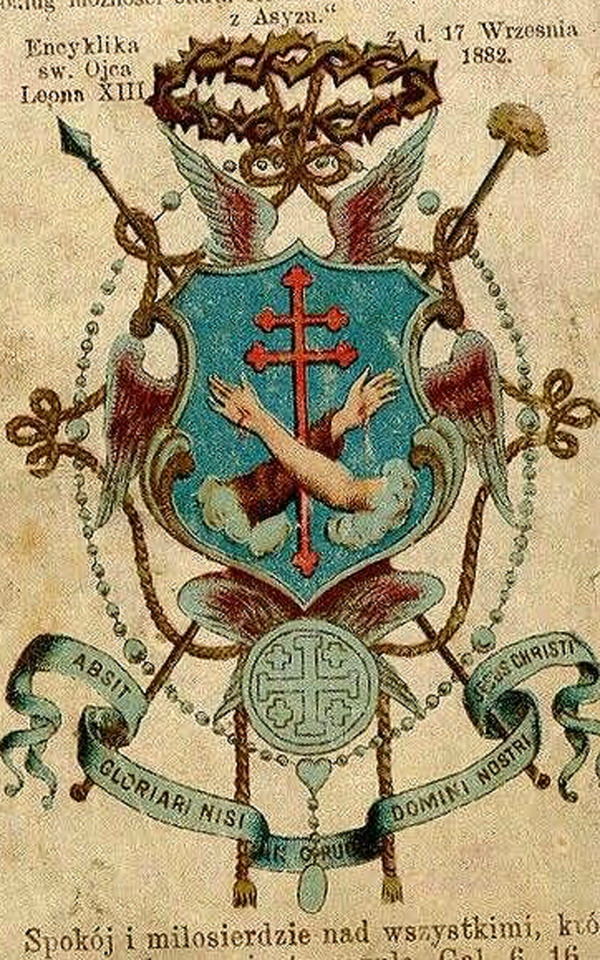
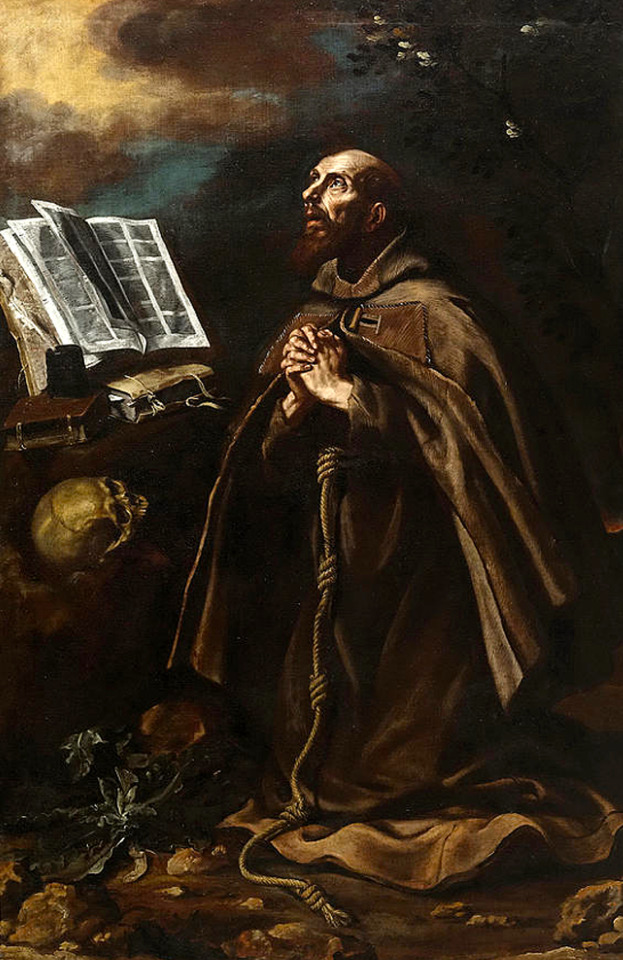
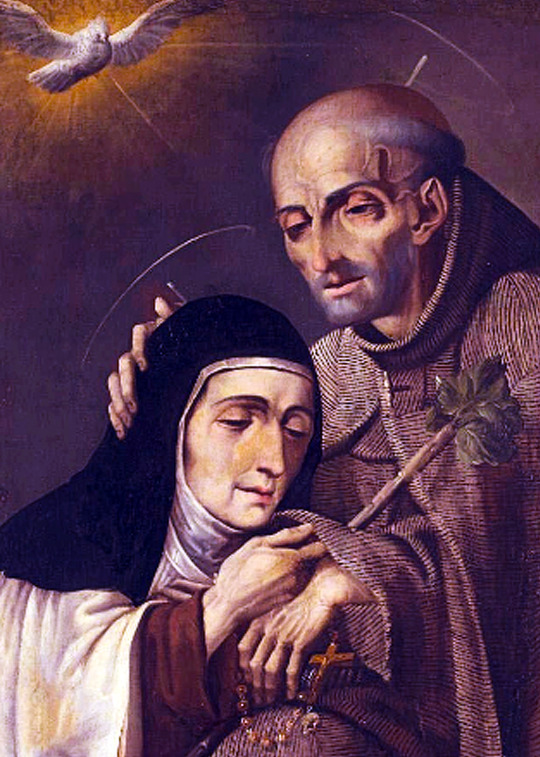
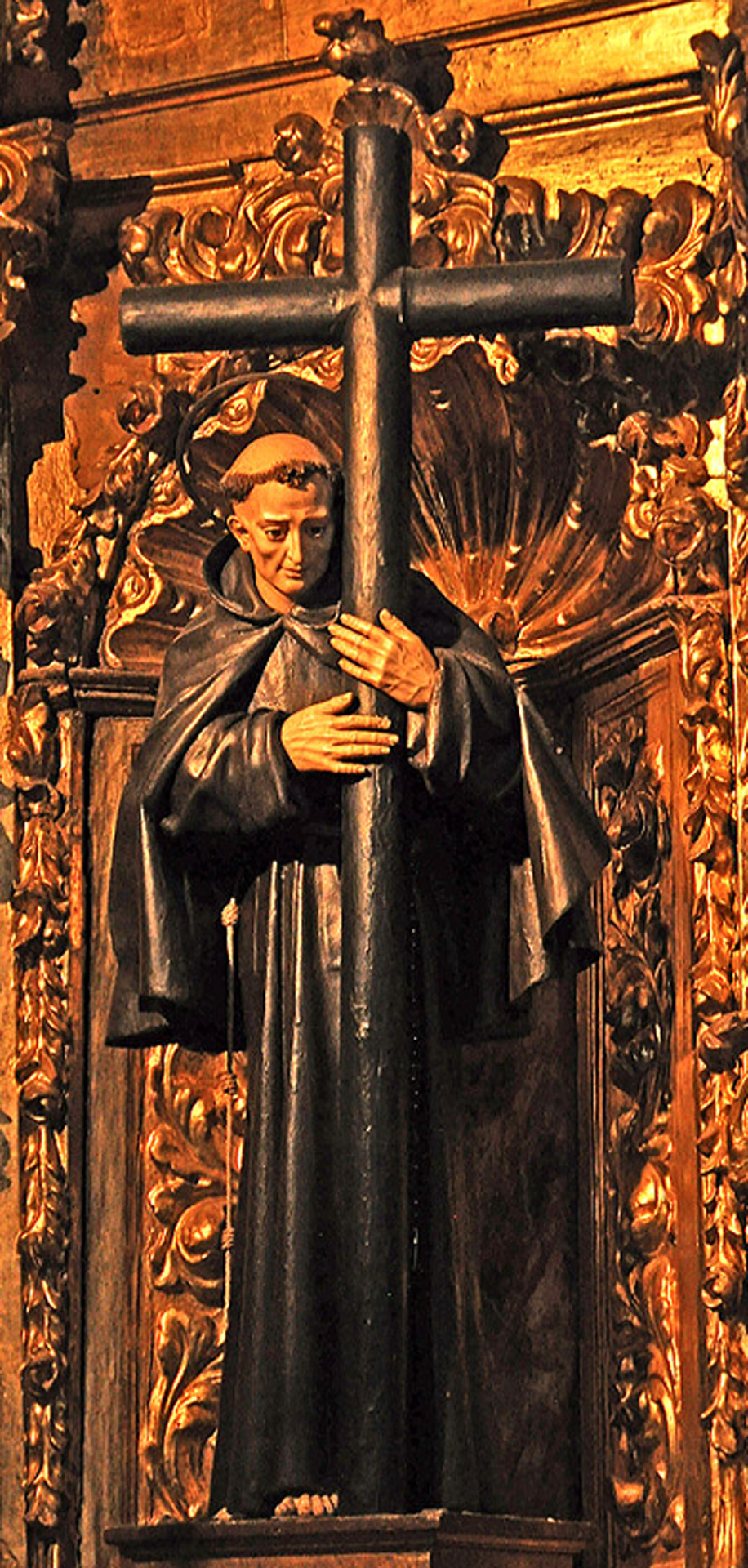
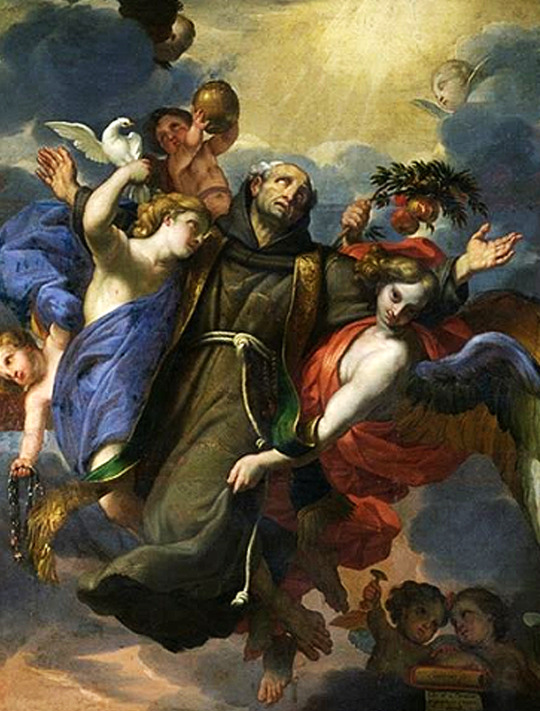
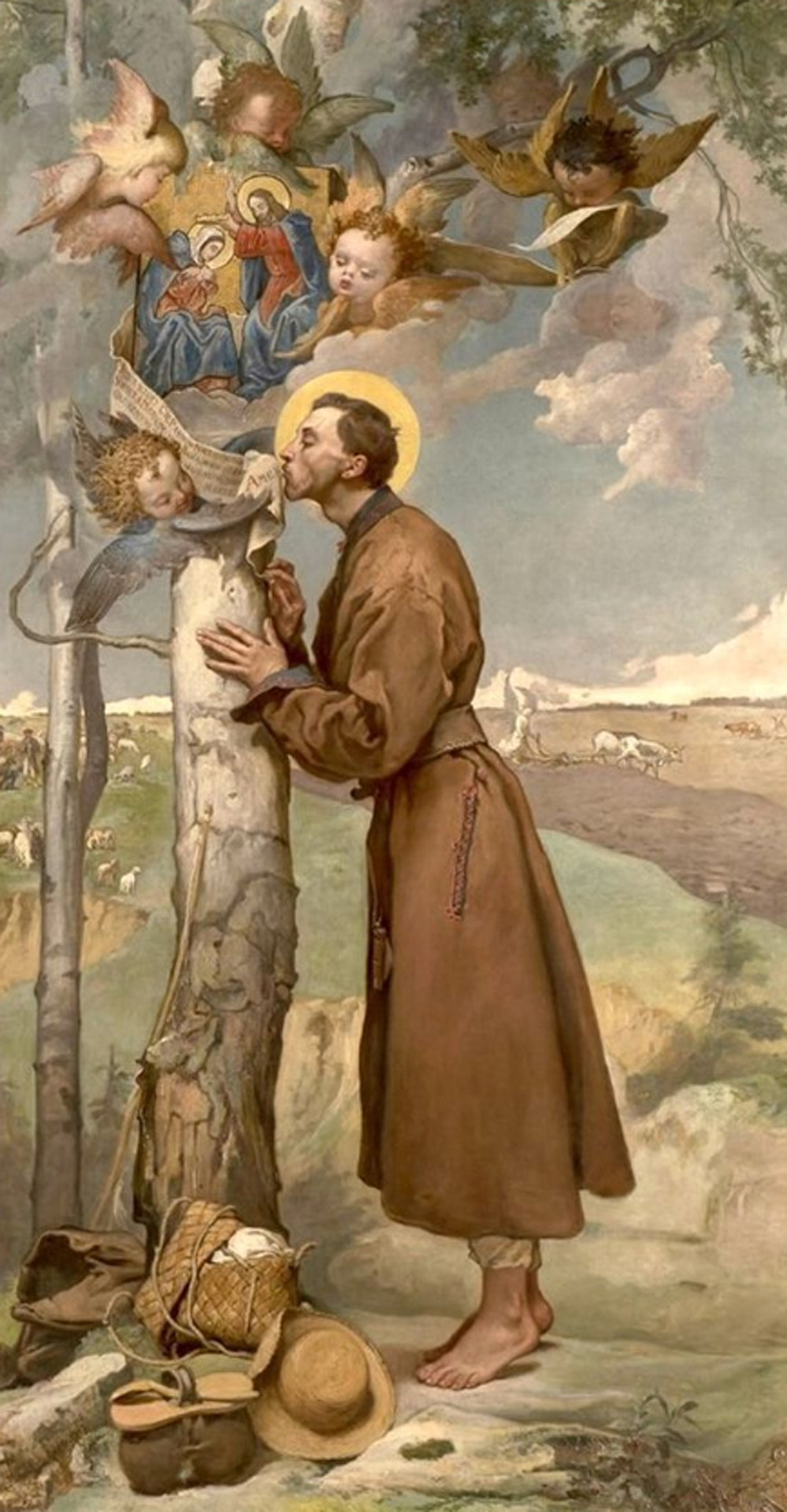
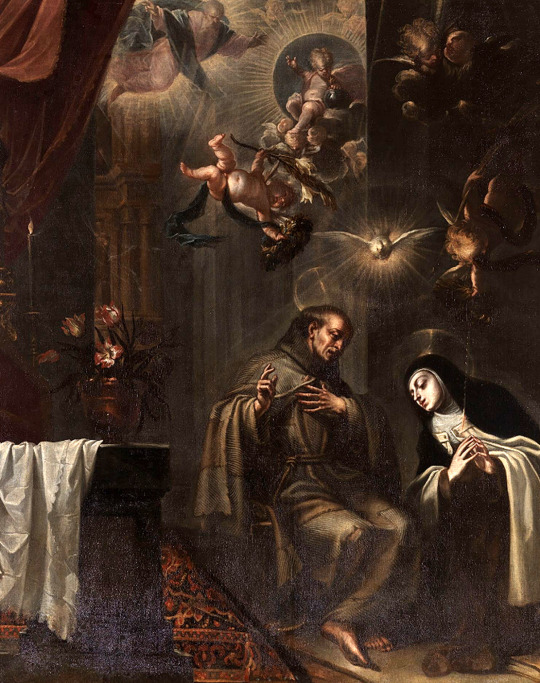
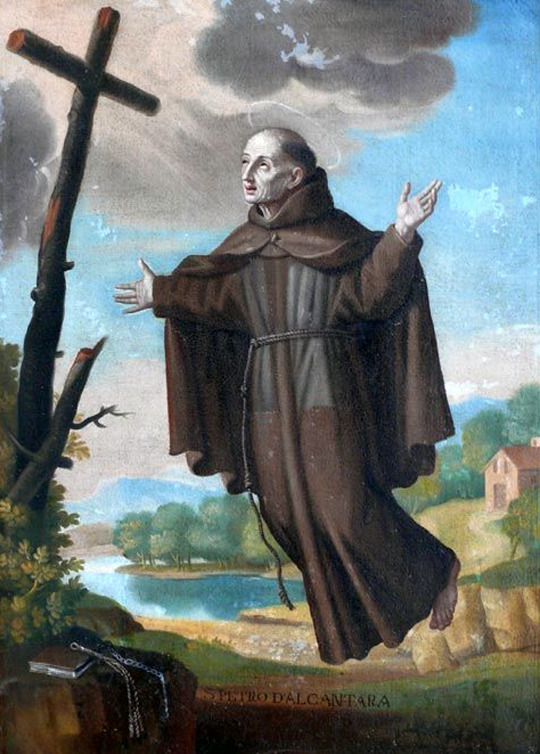

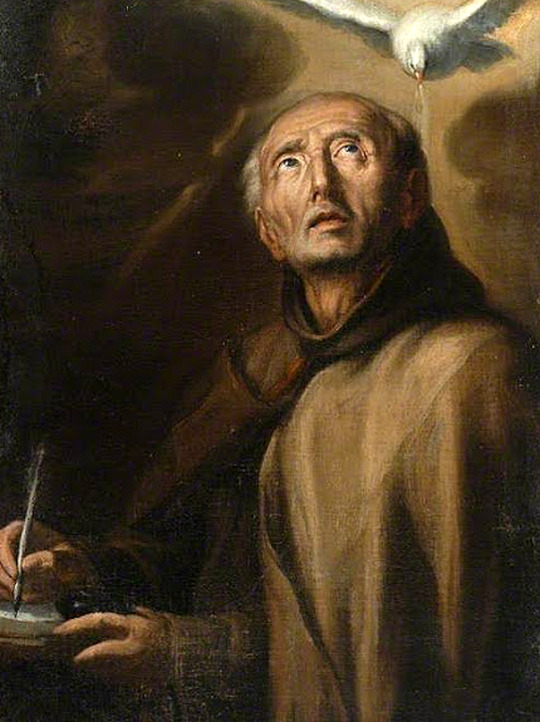
8 notes
·
View notes
Text
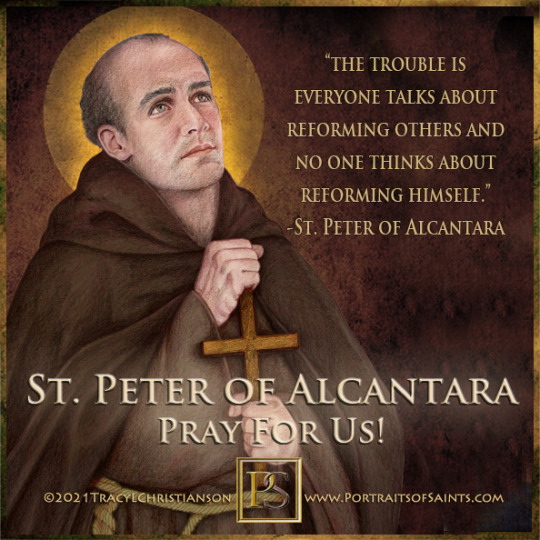
Saint Peter of Alcantara
1499-1562
Feast Day: October 19
Patronage: night watchmen, Eucharistic adoration, Brazil, Estremadura Spain
Saint Peter of Alcantara was a Spanish Franciscan friar of noble birth. He was friends of many 16th century saints including St Teresa of Avila who he was her confessor. Peter was a priest, mystic, writer, preacher, and provincial of the Observant Franciscans. He worked towards church reform, starting with himself, practicing severe penances and patience. At times he only ate once in 3 days and sleeping 90 min. a night. He started the Alcantarine reforms, which followed a stricter order of the rule of St. Francis. He died while praying on his knees.
Prints, plaques & holy cards available for purchase here: (website)
46 notes
·
View notes
Text
and IIIIIIIII will always love you
#liverpool fc#lfc#liverpool#jurgen klopp#thiago alcantara#adrian san miguel#joel matip#pep lijnders#peter krawietz#andreas kornmayer#john achterberg#vitor matos
10 notes
·
View notes
Text
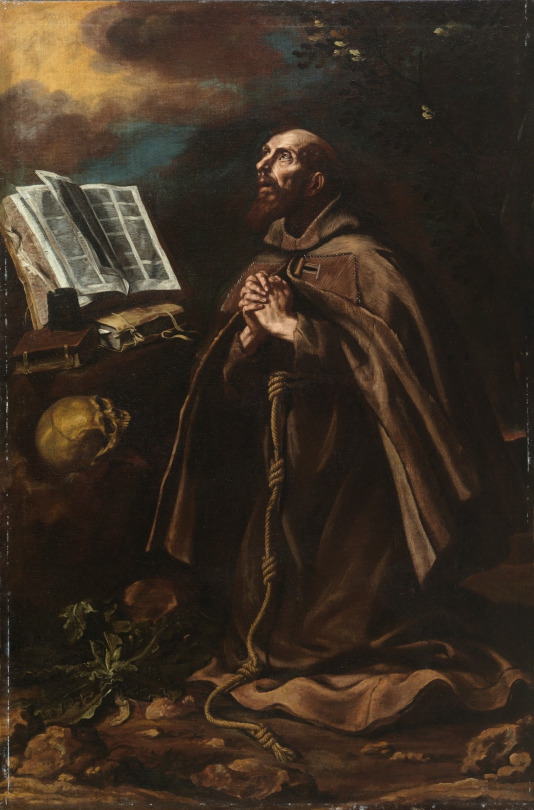
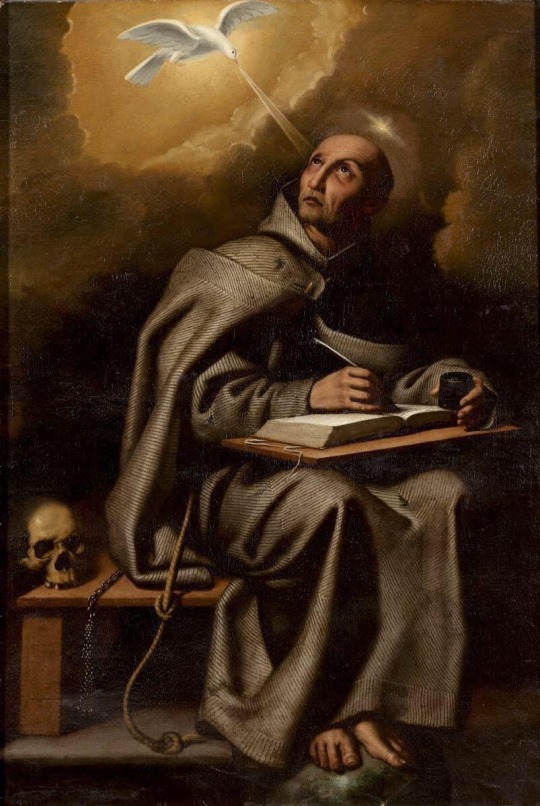
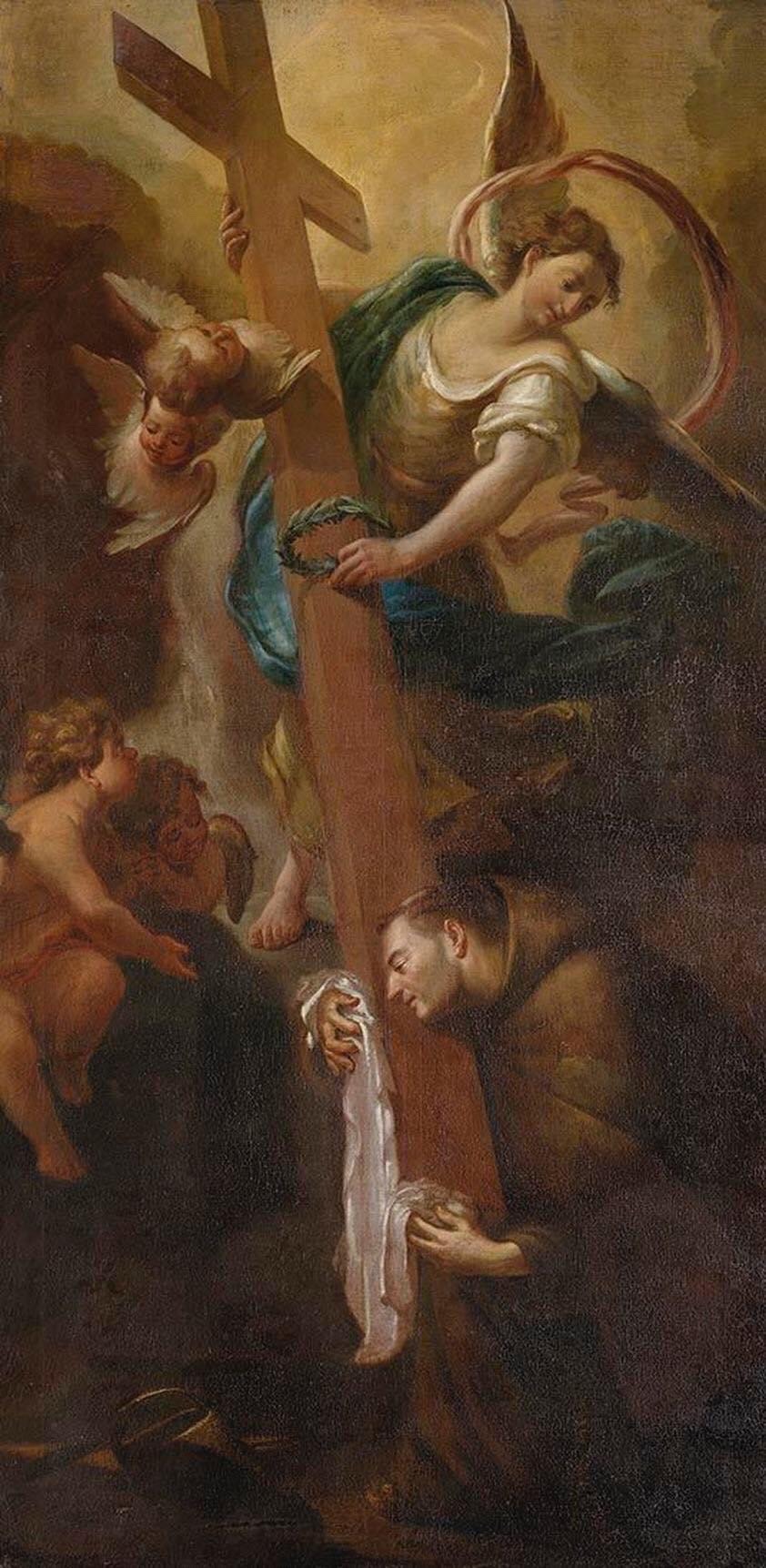
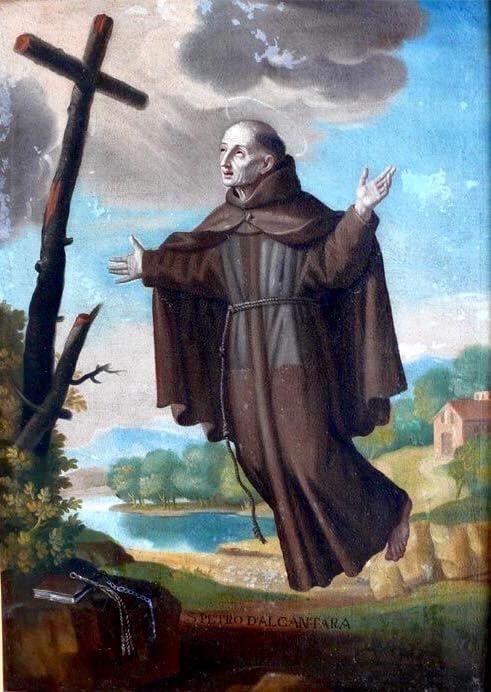
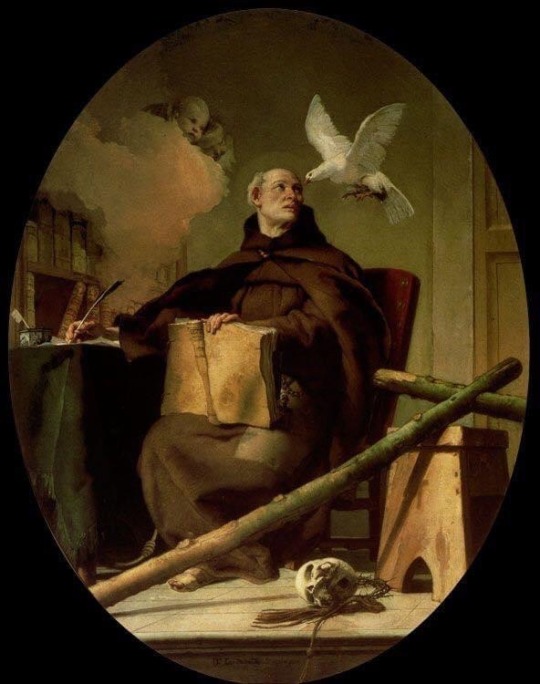
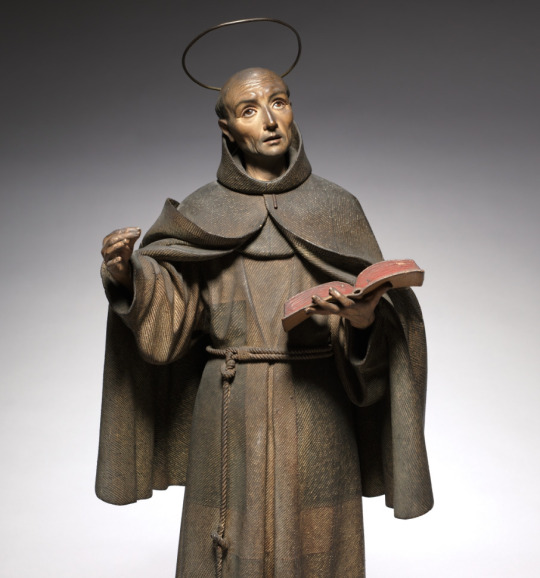

Hodie XIX octobris… Sancti Petri de Alcantara, Sacerdotis ex Ordine Minorum et Confessoris.
20 notes
·
View notes
Text
Quote of the day, 31 December: Jessica Powers
Jessica Powers’ On Reading Saint Peter of Alcántara invites us to embrace humility and solitude, entering “the solitudes of God” in love. #poetry
Go alone, he says, to the land of the living,barefooted, poor,saluting no one. On this bleak way onlyare your steps secure.Enter in by the gate humility,his word admonishes, and there embracethe chill and sharpness of a lonely place.What are you, nothingness before the All,and you cling to self as to your goodand spurn your God to keep your creaturehood.This is the season of the soul’s…
#God#humility#Jessica Powers#love#poetry#solitude#Sr Miriam of the Holy Spirit#St Peter of Alcantara
0 notes
Text
October novenas
For whoever this could interest, here’s a list of this month’s novena’s and the reasons to pray them for yourself and for others.
St. John Paul II: For healing, for courage, for the youth. Starts October 13th
All Saints Day: For intercession of all saints. Starts on October 23
Our lady of Aparecida: from October 3rd to October 10. Patron Saint of Brazil, very used to ask for help in moments of affliction
Blessed Carlos Acutis: For a greater love of the Eucharist, for the youth, for computer programmers. Starts October 3rd
St. Jude: Lost causes. Starts on October 19
Holy souls in purgatory: souls in purgatory
St. Therese of Avila: For those who suffer from headaches. Starts October 6th
St. Luke: for those preparing for surgery or recovering from surgery Starts October 9th
St. Hedwig: for the relief from debt and for help with financial difficulties Starts October 7th
All Souls’ Day: the faithful departed/ souls in purgatory. Starts on October 24
St. Anthony Mary Claret: physical healing, spiritual healing. Starts October 15
St. Gerard Majela : for a healthy pregnancy and for childbirth/ delivery Starts October 7
St. Charles Borromeo: for bishops, seminarians and catechists. Starts on October 26
St. Margarida Maria Alacoque: October 7th
Saint Ignacio of Antioquia: For conversion and for those being persecuted for their faith.
Saint Peter of Alcantara: starts on October 10th To strengthen our faith
Saint Antonio Galvão: for engineers, architects and construction workers. Starts From October 16th.

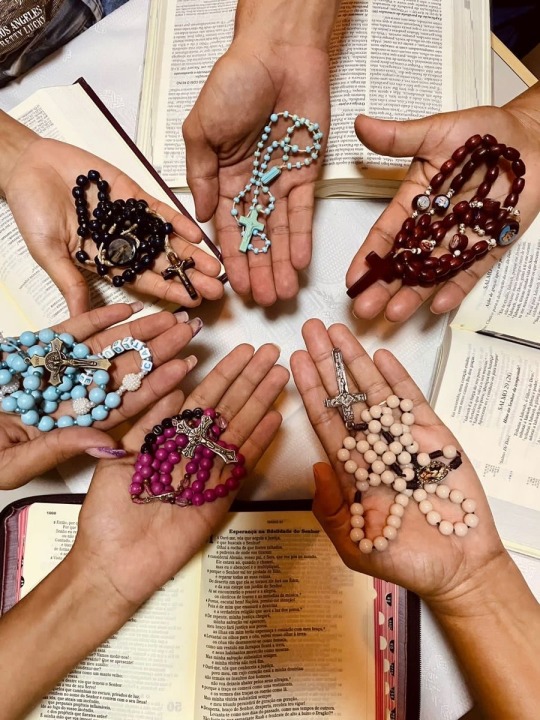
#personal#catholique#catolicos#catholiscism#catholicism#catholic#prayer#jesus#jesus christ#christian faith#trad#traditional family#tradblr
86 notes
·
View notes
Photo
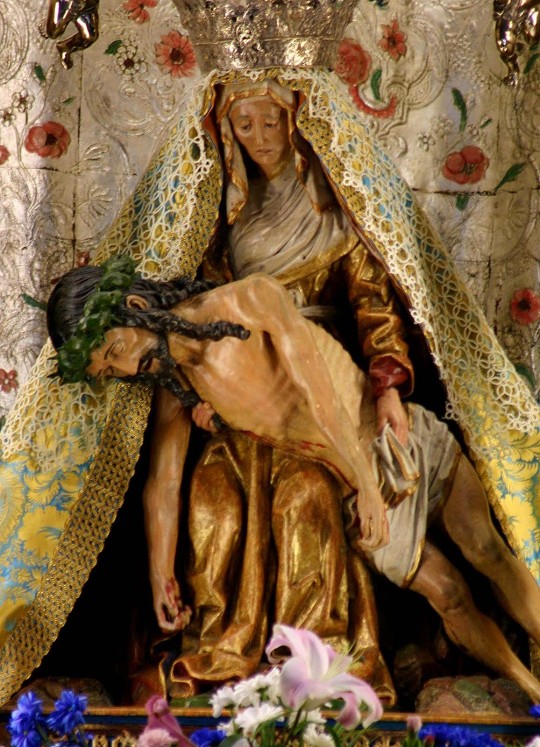
St Peter of Alcantara OFM (1499-1562) Confessor, Franciscan Friar and Priest, Mystic, Ecstatic, Writer, Preacher, Reformer, Hermit, Apostle of Prayer, Eucharistic Adoration, the Passion and Charity, Miracle-worker. Biography: https://anastpaul.com/2018/10/19/saint-of-the-day-19-october-st-peter-of-alcantara-ofm-1499-1562/ AND: https://anastpaul.com/2022/10/19/saint-of-the-day-19-october-st-peter-of-alcantara-ofm-1499-1562-confessor/
(via Virgen del Camino / Our Lady of the Way, Spain (1505), St Peter of Alcantara and Saints for 19 October – AnaStpaul)
10 notes
·
View notes
Text



Overcoming Distractions During Prayer
Before praying, I must discipline myself to follow some basic preparations - such as, choosing a quiet place where I will not be disturbed or interrupted. I should feel comfortable, including any posture or position I may wish to adopt.
There will always be distractions.
A simple way to overcome distractions is to stay focused and remain conscious so as to be aware of the surrounding. This will help much to stay attentive and observant so as to feel, taste, sniff and sense the presence of holiness and truth.
I achieve this in much the same way as I would try paying attention to and staying in conversation with visiting friends, while consciously ignoring the noisy children playing and running around in the lounge where we gather. I do not get grossly distracted by the children with and in their noisy activities. I stay focused with the adults.
Many great saints too have shared their personal difficulties during prayers.
1. St Teresa of Avila says, "This thing is inevitable; do not let it distress or disturb you, but let the mill clack on while you grind the wheat - that is, let us continue to work at the will and the intellect."
2. St Catherine of Sienna encourages us: "Let no storm disturb you for, when you pray, you are anchored in the Will of God."
3. St Peter of Alcantara speaks of distractions during prayers but reaffirms us: "If, however, these thoughts still disturb you and you still, with much perseverance, resist them, you may hold this for certain - that you gain more ground by this resistance than if you had been finding much joy in the Lord with all savour and without hindrance."
a dream's not a dream
your prayer is not yours at all
God's praying in you
©Johnny J P Lee
19 December 2024
HAIBUN: Prose + Haiku 5-7-5
Photos Credit, Unsplash Images
#poetryportal#writerscreeds#smittenbypoetry#spilledwords#writingthestorm#poeticstories#inkstainsandheartbeats#writtenconsiderstions
16 notes
·
View notes
Text
Thinking about the choice to stay being the heart of love
“Behold I am with you all days, even to the consummation of the world.” St. Matt. xxviii. 20. Thus our loving Shepherd, who has given His life for us who are His sheep, would not separate Himself from us by death. Behold Me, He says, beloved sheep, I am always with you; for you I have remained on earth in this Sacrament; here you find Me whenever you please, to help and console you by My presence; I will not leave you until the end of the world, as long as you are on earth. The Bridegroom, says St. Peter of Alcantara, wished to leave His Bride company, that she might not remain alone during so long an absence; and therefore He left this Sacrament, in which he Himself, the best companion He could leave her, remains.
—St. Alphonsus Ligouri, Visits to the Most Holy Sacrament and the Blessed Virgin Mary
30 notes
·
View notes
Text
SAINT OF THE DAY (March 5)

Self-denial is never an end in itself but is only a help toward greater charity — as the life of Saint John Joseph shows.
John Joseph of the Cross, OFM, born Carlo Gaetano Calosinto, was an Italian Catholic priest and professed member of the Order of Friars Minor��who hailed from the island of Ischia.
He had a reputation for austerity and the gift of miracles.
John Joseph was born on 15 August 1654 on the island of Ischia — off the coast of Naples.
He was very ascetic even as a young man. He devoted himself even at his youngest years to a life of poverty and fasting.
At 16, he joined the Franciscans in Naples. He was the first Italian to follow the reform movement of Saint Peter Alcantara.
John’s reputation for holiness prompted his superiors to put him in charge of establishing a new friary even before he was ordained.
Obedience moved John to accept appointments as novice master, guardian and, finally, provincial.
His years of mortification enabled him to offer these services to the friars with great charity.
As guardian, he saw himself with no higher privilege and insisted on working in the kitchen or carrying the wood and water needed by the friars.
When his term as provincial expired, John Joseph dedicated himself to hearing confessions and practicing mortification, two concerns contrary to the spirit of the dawning Age of Enlightenment.
He died on 5 March 1739.
He was beatified by Pope Pius VI on 24 May 1789 and was canonized by Pope Gregory XVI on 26 May 1839.
He is the patron saint of Ischilia, Italy, the place where he was born.
3 notes
·
View notes
Text
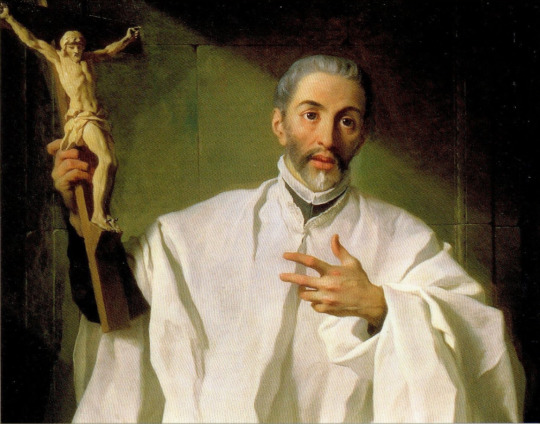
THE DESCRIPTION OF SAINT JOHN OF ÁVILA Feast Day: May 10
Born in the Castile region of Spain, John was sent at the age of 14 to the University of Salamanca to study law. He later moved to Alcala, where he studied philosophy and theology before his ordination as a diocesan priest.
After John's parents died and left him as their sole heir to a considerable fortune, he distributed his money to the poor.
In 1527, he traveled to Seville, hoping to become a missionary in Mexico. The archbishop of that city persuaded him to stay and spread the faith in Andalusia. During nine years of work there, he developed a reputation as an engaging preacher, a perceptive spiritual director, and a wise confessor.
Because John was not afraid to denounce vice in high places, he was investigated by the Inquisition but was cleared in 1533. He later worked in Cordoba and then in Granada, where he organized the University of Baeza, the first of several colleges run by diocesan priests who dedicated themselves to teaching and giving spiritual direction to young people.
He was friends with Saints Francis Borgia, Ignatius of Loyola, John of God, John of the Cross, Peter of Alcantara, and Teresa of Avila. John of Avila worked closely with members of the Society of Jesus and helped their growth within Spain and its colonies. John’s mystical writings have been translated into several languages.
He was beatified in 1894, canonized in 1970, and declared a doctor of the Church on October 7, 2012.
Source: Franciscan Media
3 notes
·
View notes
Text

Plot Drop: Dishonor In The Court
After rigorous interrogations and pitiful conditions, members of the French and Flortentian kingdoms are released from their prison cells due to there being no conclusive evidence... though, the eyes of court remain on them. Still, there is a number of criminals to bring to justice yet, and the pre-Tribunal awaits. The solicitors build their cases, selected their jurors, and the promise of honor hangs in the air ahead of the pre-Tribunal. For those who have something to hide, this the last night before all bets are off, and every secret stands to be revealed.
But there is dishonor in the court, and it starts the evening before the pre-Tribunal.
(TW: Violence, Murder)
The Night Before the Pre-Tribunal
A seemingly ordinary evening in The Paco Imperial Palace, though guards remain on high alert following the escape of many French criminals. It is well past the witching hour when an organized group of masked mercenaries subvert De Alcantara’s well-positioned prison guards. The ripple effect of the string of escapees force the hand of those who chose violence. The targeted prisoners are roused by swords at their throats. “We have come to enact true justice.” They proclaim, forcing their way into each cell, until Madhavan Parkash and Rishabh Sundar of the Mughal Empire are identified. “Our home sends their regards.” They heed, prepared to execute the two accused, pockets heavy with Indian rupees. A struggle ensues, with the pair fighting for their lives. By the time palace authorities come to investigate, it is too late. The mercenaries are gone, with only a handful of Indian rupees and a Mughal Empire-forged blade found at the scene. Madhavan is dead, and Rishabh is comatose in the infirmary. The Mughal Empire strikes, and from it, comes the unraveling. Were they avenging their former fallen Empresses... or were they protecting their own secrets?
However, it was not only the Mughal Empire who had taken to the cover of night to slate a bloodlust. Undiscovered until the next morning, there was another assassin - one much quieter, clean. Kaiden Nelson of Cardiff was killed at some point in the night, and the scene appears to be entirely undisturbed save for one missing item of the soldier's. A stack of letters & a page of stamps - three missing. In the letters, contained information valuable to the Scottish Rebellion, and one may wonder who received the first three.
The Day of the Pre-Tribunal
Accused and all-but-proven of interfering with justice and acting against the diplomatic will of the countries in attendance, the members of the Mughal Empire are immediately confined to their apartments to sit out the Pre-Tribunal. An investigation will be held, and whoever knew of the violent storm of the prisons would be charged, tried, and sentenced as well. Panic strikes the early morning, and many whisper - “Surely the pre-tribunal cannot happen now!” Despite the panicked sentiment, those most invested in justice following the Reckoning demand to see it through. The Pre-Tribunal will carry on as planned, and the Grand Jury Hall is prepared. Everyone - from royals, nobles, to staff, is required to be in attendance, excluding the Mughal Empire, of course.
The first of the accused to stand trial is Takuda Toshiko of Japan/Hong Kong. A spy at Japanese court and cousin to the reigning Emperor. After thorough examination of the facts and a lengthy interrogation, Takuda cracks and confesses, shaken by the attack on Rishabh. Takuda confesses to murdering the former Emperor and Empress of Japan, and promises full cooperation in the investigation in exchange for lighter sentencing for Rishabh if she recovers from the night before. When asked for a motive - he said nothing.
Verdict: Guilty - Held in prison, awaiting Emperor Kaito’s decision on sentencing.
The second of the accused to stand trial is Peter Hermann of Scotland/Germany. A former groundskeeper of Scotland and current resident of Germany. Peter stands accused of involvement in the death of the former generation of rulers; the deceased rulers of Scotland and Germany. The evidence pointing towards Peter's involvement in both the Reckoning and the death of the former German leaders is overwhelming, with little reasonable doubt.
Verdict: While it also appears that Peter was lying about his lack of involvement with the Scottish rulers, as his story continued to change and the details muddled - he was finally found not guilty for the murder of the former Scottish rulers. He was, however, found guilty for the murder of Germany's King & Queen. Sentencing decisions will be left up to the Hatzfeld's - a fact that the Scottish section greatly opposed.
Swords were drawn, shouts rang out, and justice was demanded - Scotland & Germany yelling at one another across the courtroom. Order was barely restored just before blood spilled, with a promise for a further investigation to be held deeper to the crimes against Scotland by Peter's hand.
The third of the accused to stand trial is Meryem Adin of Turkey/China. Long-time mistress to the former, ruling Sultan of Turkey (father to the current generation of Adbul's). Recently, Meryem confessed to falsifying evidence against the former Sultan of Persia to influence Turkey's attack on his life, in order to fan the flames of a Persian/Turkish conflict. She has claimed to have taken refugee safely in China ever since.
Meryem swore to tell the truth, with no motivation to keep secrets any longer. Much to the detriment of Turkey, Persia, China, and even Madagascar. The court waits with bated breath. But a different sound comes; Meryem shrieks in pain, collapsing on the floor and left undone. The guards make haste to her body, quick to inspect the goblet of water placed at the stand. Poison. She was dead. Though first assumed to be of Madagascar origin - it is revealed that is a copycat design, of lesser potency. If Meryem had been in better health, she would have survived and the secrets she had to spill would be known.
Verdict: No verdict. Meryem is deceased before trial can commence.
The shocking spectacle of continued death & murder leads to absolute chaos. Screams of accusation are hurled - finding home mostly with those in Persia and Turkey. Everyone comes to a stand, and all form of order is lost. The remaining prisoners are ushered quickly off to the side, to return to the dungeons. But as panic ensues and confusion reigns, opportunity is seized. Those with a score to settle find their opportunity to do so, as swords clash and tempers rise. A single dagger, undoubtedly from where the Scottish court & staff huddled together, flew with impeccable aim across the courtroom, and found it's lethal target in Peter. Another down.
Amidst the fray of chaos and despair, it is the kingdoms of Egypt and Norway that break through the frenzy. Calling for order, the nations highlight their diplomacy (or perhaps, their self-interest) by putting an end to the violence and demanding stricter punishment. With less than half of the criminals they started the Tribunal with, the decision is made to end the pre-Tribunal. With many terrified and injured, a new curfew is issued to the guests - no one is allowed out of their chambers past 10pm, and to leave the palace, everyone must sign in and out with the guards.
The remaining criminals awaiting trial are Gabriel Cuvelier, Sabino Montez, Lao Patalung, and Pascal Rakotoson - and Rishabh Sundar, if she makes a recovery.
OOC details under the cut!
The events of the plot drop take place in the last week of June. We are still in the month of June in-character. You can continue to write threads during this timeline. Please do not progress your threads more than a week after the pre-Tribunal into the month of July in-game.
If you wish, you can opt for your muses to take action during the chaos of the pre-Tribunal. This includes; getting into a fight, small injuries, causing some mayhem, or taking cover where they can. All we ask is that any major plots, such as; extensive injuries, extensive harm to other muses, or anything that would impact the events following the chaos are discussed with the admin team. We encourage you to come up with your own ideas, theories, and plots to bring to us if this drop inspired you to do so!
Have fun! Let us know if you have any questions or concerns. With the admin team going into a busy season/hiatus in the near future - this will be the major plot event (including mini drops) for a few weeks!
Next up is a location change - expect a vote on our new location in the next week or two!
5 notes
·
View notes
Text

Happy Feast Day
Saint Peter of Alcantara
1499-1562
Feast Day: October 19
Patronage: night watchmen, Eucharistic adoration, Brazil, Estremadura Spain
Saint Peter of Alcantara was a Spanish Franciscan friar of noble birth. He was friends of many 16th century saints including St Teresa of Avila who he was her confessor. Peter was a priest, mystic, writer, preacher, and provincial of the Observant Franciscans. He worked towards church reform, starting with himself, practicing severe penances and patience. At times he only ate once in 3 days and sleeping 90 min. a night. He started the Alcantarine reforms, which followed a stricter order of the rule of St. Francis. He died while praying on his knees.
Prints, plaques & holy cards available for purchase. (website)
21 notes
·
View notes
Text
A golden treatise of mental prayer : with divers spiritual rules and directions, no less profitable, than necessary, for all sorts of people. : Peter, of Alcantara, Saint, 1499-1562 : Free Download, Borrow, and Streaming : Internet Archive
#carmelite devotions#third order carmelites#carmelite nuns#trad catholic#carmelite rite#carmelite#martyrs of compiègne#youtube
0 notes
Text
Quote of the day, 15 October: St. Teresa of Avila
Christ commanded St. Teresa of Avila to establish the Monastery of St. Joseph. Discover her journey to fulfill this mission, described by St. Edith Stein. #StTeresaOfAvila
One day after Communion, His Majesty earnestly commanded me to strive for this new monastery with all my powers, and He made great promises that it would be founded and that He would be highly served in it. He said it should be called St. Joseph and that this saint would keep watch over us at one door, and our Lady at the other, that Christ would remain with us, and that it would be a star…
#Avila#Doña Luisa de la Cerda#family life#Monastery of the Incarnation#monastic life#reform#St Edith Stein#St Francis Borgia#St Joseph&039;s monastery#St Louis Bertrand#St Peter of Alcantara#St Teresa of Avila
0 notes
Text

SAINTS OCTOBER 18 "There is only one tragedy in this life, not to have been a saint."- Leon Bloy
ST. LUKE, EVANGELIST, PHYSICIAN, PATRON OF ARTISTS Of the four Evangelists, St Luke is the best at drawing descriptions of individual personalities. He probably owes his reputation as an artist to this characteristic. St. Luke, the writer of the Gospel and the Acts of the Apostles, has been identified with St. Paul's "Luke, the beloved physician. https://www.vaticannews.va/en/saints/10/18/st--luke--evangelist--physician---patron-of--artists.html
St. Justus of Beauvais, Roman Catholic Martyr. Justus was reported to the authorities to be a Christian magician, and soldiers were sent to arrest him. When confronted at Beauvais, Justus, who was nine years old, confessed that he was a Christian, and he was immediately beheaded Feast day is October 18th.
St. Gwen, 5th century. Widowed martyr sometimes called Blanche, Wenn, or Candida. She was the daughter of a Chieftain, Brychan or Brecknock. Saxon pagans martyred Gwen at Talgrarth.
St. Keyna, 5th century. Welsh virgin, also called Keyne or Ceinwen. She is possibly one of the twentyfour children of the chieftain Brychan of Brecknock, Wales. Keyna supposedly became a hermitess on the banks of the Severn River in Somerset, England St. Cadoc, her nephew, convinced her to return to Wales. She founded churches in southern Wales and in Cornwall, England, and possibly in Somerset.
St. Monon, 645 A.D. Scottish pilgrim who moved to Ardennes, France, to become a hermit in that area. Monon was murdered at Nassogne, in Luxembourg, by a group of unrepentant sinners.
St. Peter of Alcantara, Roman Catholic Fransican Priest. Feast day is October 18th.
1 note
·
View note